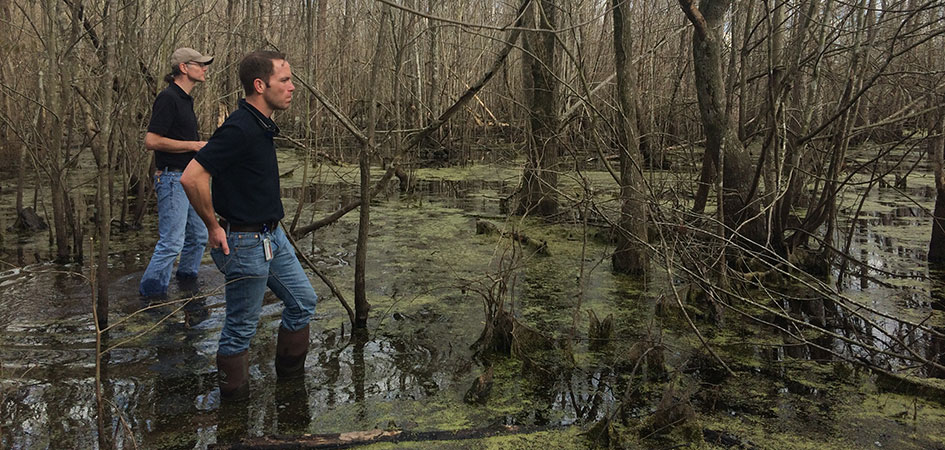The Water Institute of the Gulf’s senior personnel have decades of individual and combined technical experience working in riverine, coastal, and deltaic systems in the United States and around the world. Our proven track record in working with state and federal agencies, private sector firms, universities, and communities shows the commitment the Institute demonstrates in providing the engineering and technical expertise that leaders need to make difficult decisions around water-based resources.
Our applied projects, from support for large-scale planning and decision making to targeted location-specific problem solving, are characterized by an interdisciplinary approach and a commitment to scientific and engineering rigor.
We develop and apply world-class integrated hydrologic, morphodynamic, and ecosystem numerical tools to understand short- and long-term dynamics of complex riverine, coastal, and deltaic systems. Since 2015, the Institute has been a certified Delft3D Modeling Center – the only North American-based organization to receive such a credential.
These models are informed by the Institute’s ability to provide a wide range of boat-based and fixed-station observations and field investigations of riverine, deltaic, coastal, and continental shelf environments. We have equipment and expertise that enables us to conduct sub-bottom acoustic surveys, preform geological measurements, characterize wetland vegetation and soil, and collect data in complex and rugged coastlines and riverine environments. Our team has the experience to analyze, summarize, and interpret findings into formats useful for decision-makers.
At the Institute, we recognize the importance applied science can have to coastal communities and the supporting economies. The Institute’s Human Dimensions team excels in bringing together community members for meaningful input into the coastal, river, and delta decisions being made for restoration or increased resilience. By categorizing this community input, the Human Dimensions team’s work allows for better integration of the community values and knowledge into the science of resiliency.
In addition, the Water Institute employs world class engineers and scientists who are often called upon to provide expert opinion and advice, and perform independent review to ensure technical information used in decision making is sound, evidence-based, and meets the state of the practice.
The Institute staff works closely with policymakers and planners and are practiced in quantifying the impacts of (and differences between) numerous design and operation configurations of hydrologic engineering projects. We look forward to hearing from you.

